
Coffee is a drink prepared from roasted coffee beans. Darkly colored, bitter, and slightly acidic, coffee has a stimulating effect on humans, primarily due to its caffeine content. It is the most popular hot drink in the world.
Seeds of the Coffea plant's fruits are separated to produce unroasted green coffee beans. The beans are roasted and then ground into fine particles that are typically steeped in hot water before being filtered out, producing a cup of coffee. It is usually served hot, although chilled or iced coffee is common. Coffee can be prepared and presented in a variety of ways (e.g., espresso, French press, caffè latte, or already-brewed canned coffee). Sugar, sugar substitutes, milk, and cream are often used to mask the bitter taste or enhance the flavor.
Though coffee is now a global commodity, it has a long history tied closely to food traditions around the Red Sea. The earliest credible evidence of coffee drinking in the form of the modern beverage appears in modern-day Yemen from the mid-15th century in Sufi shrines, where coffee seeds were first roasted and brewed in a manner similar to current methods. The Yemenis procured the coffee beans from the Ethiopian Highlands via coastal Somali intermediaries and began cultivation. By the 16th century, the drink had reached the rest of the Middle East and North Africa, later spreading to Europe. In the 20th century, coffee became a global commodity, creating different coffee cultures around the world.
The two most commonly grown coffee bean types are C. arabica and C. robusta. Coffee plants are cultivated in over 70 countries, primarily in the equatorial regions of the Americas, Southeast Asia, the Indian subcontinent, and Africa. As of 2018, Brazil was the leading grower of coffee beans, producing 35% of the world's total. Green, unroasted coffee is the most traded agricultural commodity and one of the most traded commodities overall, second only to petroleum. Despite sales of coffee reaching billions of dollars worldwide, farmers producing coffee beans disproportionately live in poverty. Critics of the coffee industry have also pointed to its negative impact on the environment and the clearing of land for coffee-growing and water use.
The word coffee entered the English language in 1582 via the Dutch koffie, borrowed from the Ottoman Turkish kahve, borrowed in turn from the Arabic qahwah. Medieval Arab lexicographers traditionally held that the etymology of qahwah meant 'wine', given its distinctly dark color, and derived from the verb qahiya, 'to have no appetite'. The word qahwah most likely meant 'the dark one', referring to the brew or the bean; qahwah is not the name of the bean, which are known in Arabic as bunn and in Cushitic languages as būn. Semitic languages had the root qhh, 'dark color', which became a natural designation for the beverage. There is no evidence that the word qahwah was named after the Ethiopian province of Kaffa (a part of where coffee originates from: Abyssinia), or any significant authority stating the opposite, or that it is traced to the Arabic quwwa, meaning 'power'.
The terms coffee pot and coffee break originated in 1705 and 1952 respectively.
According to one legend, ancestors of today's Oromo people in a region of Jimma in Ethiopia were the first to recognize the energizing effect of the coffee plant. However, no direct evidence has been found earlier than the 15th century indicating who among the African populations used it as a stimulant, or where coffee was first cultivated. The story of Kaldi, the 9th-century Ethiopian goatherd who discovered the stimulating effect of coffee when he noticed how excited his goats became after eating the beans from a coffee plant, did not appear in writing until 1671 and is probably apocryphal.
Another legend attributes the discovery of coffee to Sheikh Omar. According to an old chronicle (preserved in the Abd-Al-Kadir manuscript), Omar, who was known for his ability to cure the sick through prayer, was once exiled from Mocha in Yemen to a desert cave near Ousab (modern-day Wusab, about 90 kilometres (56 mi) east of Zabid, Yemen). Starving, Omar chewed berries from nearby shrubbery but found them to be too bitter. He tried roasting the seeds to improve the flavor, but they became hard. He then tried boiling them to soften the seed, which resulted in a fragrant brown liquid. Upon drinking the liquid, Omar was revitalized and sustained for days. As stories of this "miracle drug" reached Mocha, Omar was asked to return and was made a saint.
If you want to read a whole lot more, go here: https://en.wikipedia.org/wiki/Coffee
- 1 (8-ounce) container refrigerated crescent rolls
- 8 slices deli turkey (about 1/2 pound)
- 8 slices deli ham (about 1/2 pound)
- 12 slices deli hard salami (about 1/2 pound)
- 8 slices Swiss cheese (about 1/2 pound)
- 1 (12-ounce) jar roasted peppers, drained
- 4 eggs, beaten
- Preheat oven to 350º. Unroll crescent roll dough without separating triangles. Separate dough into 2 squares along center cut line.
- Place 1 square of dough into an 8-inch square baking dish. Using your fingertips, press dough to fit bottom of dish.
- Layer with half the turkey, ham, salami, Swiss cheese, and roasted peppers. Pour half the beaten eggs over the peppers and repeat the layers with remaining meats, cheese, and peppers. Place remaining square of dough over peppers. Pour remaining beaten eggs over dough and cover lightly with foil.
- Bake 20 minutes, remove foil, and bake an additional 20 to 22 minutes, or until golden and heated through. Let cool 5 minutes, then cut and serve.
- Ialian Layer Bake is a Mediterranean delight. This recipe features layers of Italian meats, peppers, and bubbly cheese under a golden crust. When you bring this dish out for lunch, everyone will be asking for seconds!
1893 – Edward G. Robinson, American actor (d. 1973)
1900 – Sammy Davis, Sr., American actor and dancer (d. 1988)
1915 – Frank Sinatra, American singer, actor, and producer (d. 1998)
1923 – Bob Barker, American game show host and producer
1938 – Connie Francis, American singer and actress
1940 – Dionne Warwick, American singer and television personality
1952 – Cathy Rigby, American gymnast




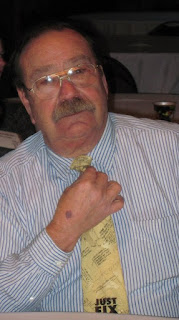

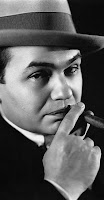

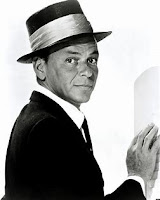


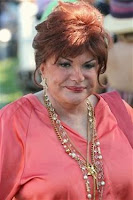
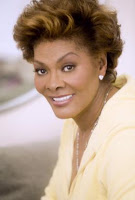


No comments:
Post a Comment